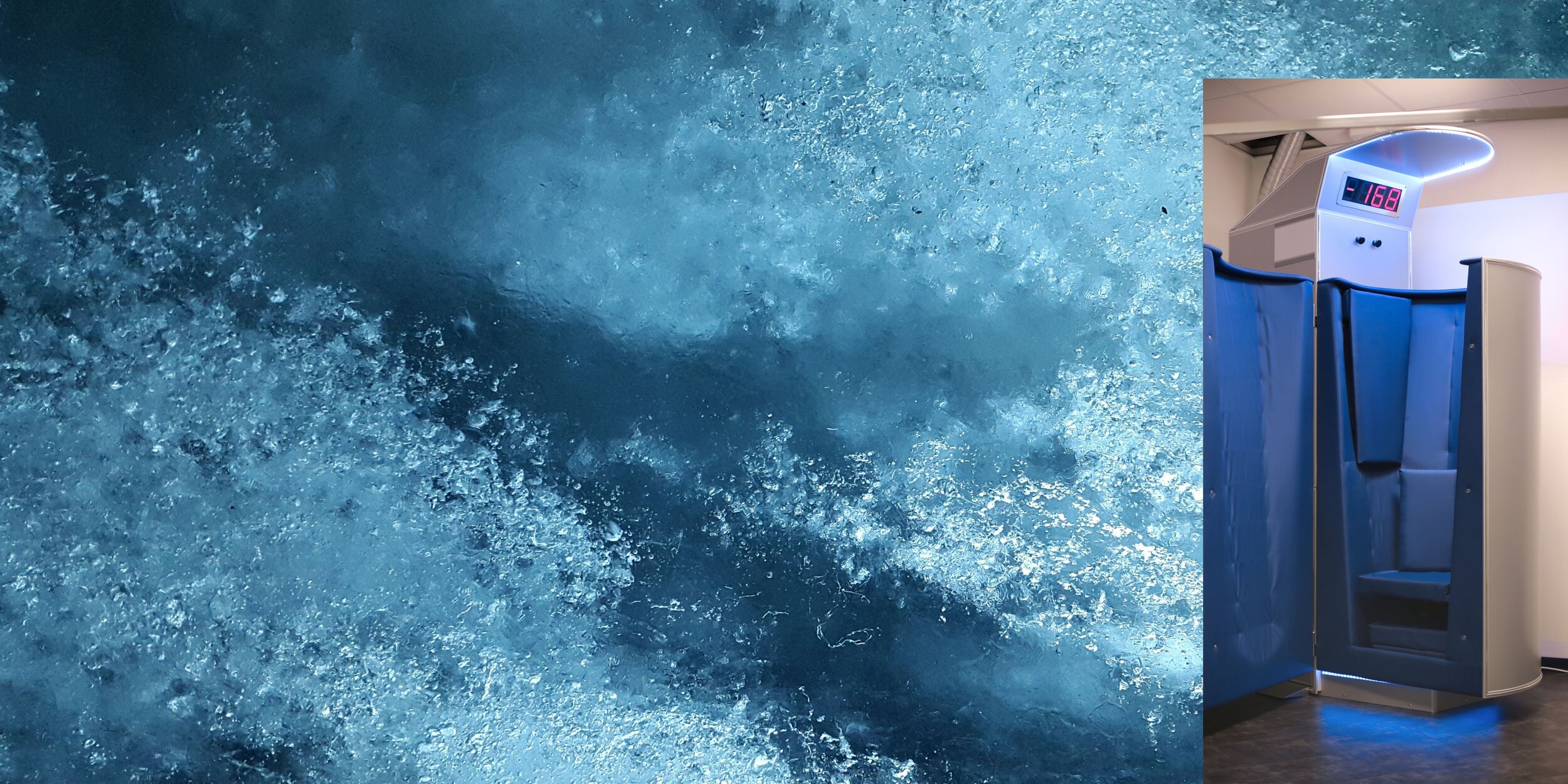Now Open in Woodforest!

Woodforest Cryotherapy
What is Cryo?
Cryotherapy is a form of cold therapy which exposes the body to temperatures of approx. [-160 to -190] degrees F for up to three minutes. Cryotherapy uses liquid nitrogen meaning that you don’t get wet during your treatment, the air is dry.
Reduces Inflammation
Cryotherapy triggers anti-inflammatory norepinephrine release that reduces short-term pain from injuries. The cool thing about cryotherapy is that it can decrease inflammation while simultaneously strengthen your immune system by increasing white blood cells and immune cells; your bolstered immune system can then kill viruses and fight off tumor factors.
Performance & Exercise Recovery
The use of cryo has been shown to increase strength, power and agility. Research has found that whole body cryotherapy performed one hour after plyometric exercise resulted in improved power and strength. Cryo one hour and 24 hours post exercise enhanced muscle recovery by decreasing the inflammation according to another research.
Increases Collagen Production
Collagen, the protein behind strong cartilage, joints, skin and hair, also ramps up production after cryotherapy, and collagenase, an enzyme responsible for rapid collagen breakdown, slows down. Collagen helps smooth wrinkles and boost elasticity in the skin. It will also improve joint and cartilage strength making you less prone to injuries.
Enhances Immune System
Exposure to the cold has also been shown via research to improve the immune systems functioning which plays a role in preventing disease as well as the ageing process. Research has revealed that exposure to the cold appears to increase our immune cells. One study found that exposure to the cold increased the body's white blood cell numbers including cytotoxic T Lymphocytes. These immune cells play a vital role in killing cancer cells.
Enhanced Sleep Quality and Improved Mood
Cold exposure produces feel-good endorphins and increases production of norepinephrine. Norepinephrine is a hormone and neurotransmitter involved in your sleep-wake cycle and has profound effects on energy, focus, mood and sleep patterns. The rise in norepinephrine along with a decrease in cortisol (the stress hormone) supports a healthy deep sleep.




